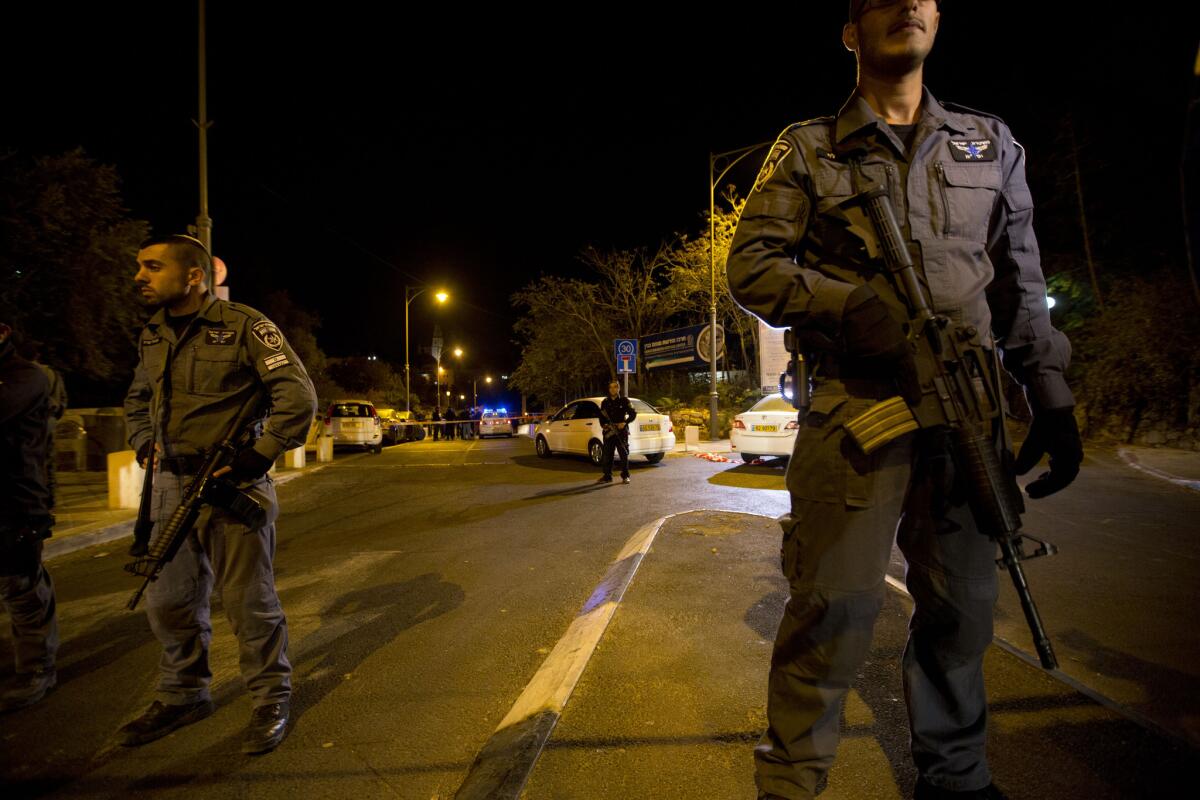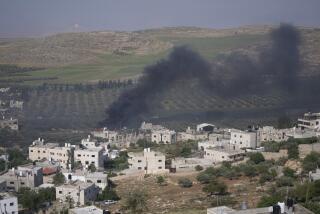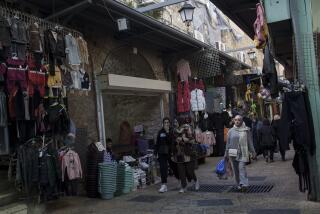Violence leads Israel to close contested Temple Mount-Al Aqsa site

The contested Temple Mount and Al Aqsa mosque compound was closed to worshipers and visitors Thursday after back-to-back shootings incited fresh riots — a reflection of the deep passions aroused by the site, among the holiest places for both Jews and Muslims.
Yehuda Glick, a stalwart advocate of Jewish access to Temple Mount and rebuilding the Jewish temple on the site, was shot Wednesday night after a meeting at the Begin Heritage Center in Jerusalem. The gunman escaped on a motorcycle, leaving the U.S.-born activist with serious injuries to his chest and neck. He was in intensive care at Shaare Zedek Medical Center in Jerusalem.
Several hours later, intelligence services identified the shooter as Muataz Hijazi, 32, a Palestinian from Jerusalem who was released from jail two years ago after serving a 10-year sentence for security offenses. Israeli authorities said Hijazi, who worked at the restaurant at the heritage center, waited for Glick after a work shift.
Police special forces surrounded the Hijazi family house in the Jerusalem neighborhood of Abu Tor, where Hijazi was believed to have gone, and called on him to surrender. According to police, he was shot and killed after he opened fire at troops from the roof of the two-story house. Palestinians charge he was not given a chance to turn himself in. Hijazi’s funeral was set for Thursday night.
Palestinians demonstrated outside the house and scuffled with police, who responded to thrown rocks with tear gas and stun grenades, as the city was filled with the sound of sirens and the rumble of helicopters overhead.
The escalation in violence highlights the dispute over the holy site and its role in the latest flare-up in Jerusalem and in the Israeli-Palestinian conflict overall.
Jews have access to the top of Temple Mount — one face of which includes the Western Wall, a remnant of the ancient Jewish temple compound — but other visitors cannot pray at the site and are barred from entering the complex of Al Aqsa mosque. Temple Mount is considered the holiest site in Judaism, and Al Aqsa is regarded as the third-holiest site in Islam. Christians also revere it for its role in Jesus’ life.
Campaigns for increased access for Jews and greater rights at the site have angered Palestinians and Muslims, who have called on believers to defend the site.
In recent days, Israeli Prime Minister Benjamin Netanyahu has accused Palestinian Authority President Mahmoud Abbas of encouraging the recent wave of violence in Jerusalem by saying that Jews must be barred from entering Temple Mount by any means.
“I still have not heard from the international community so much as one word of condemnation for these inflammatory remarks,” Netanyahu said Thursday at a meeting he convened with defense, police and intelligence officials.
Scolding the international community for what he called “hypocrisy,” he said he had ordered significant reinforcements to maintain security in Jerusalem “and the status quo in the holy places.”
A spokesman for Abbas said denying access to the site amounted to “a declaration of war.”
“Harming the places sacred to Muslims and Christians is a red line,” spokesman Nabil abu Rudaineh said in a statement, adding that Abbas would “not permit this line to be crossed.”
After the attack on Glick, who was in serious but stable condition, Israeli Public Security Minister Yitzhak Aharonowitz declared the site closed to both Arabs and Jews, angering both sides. After security assessments were made Thursday evening, police announced the mosque would reopen Friday to male worshipers older than 50 and women of all ages.
According to the Palestinian news agency Maan, activists in Jerusalem declared Friday a “day of rage” against Israeli authorities.
Also Thursday, Sweden’s new left-leaning government announced its recognition of a Palestinian state, fulfilling a promise made when it took power this month.
Swedish Foreign Minister Margot Wallstrom said the criteria for such recognition had been met. “There is a territory, a people and government,” she told reporters in Stockholm. A Foreign Ministry statement said the purpose of the recognition was to “contribute to a future in which Israel and Palestine can live together side by side in peace and security.”
The move followed a nonbinding vote by Britain’s Parliament to recognize a Palestinian state, and foreshadows similar votes in other European countries.
Abbas welcomed the decision as “brave and historic.”
Denouncing Sweden’s move as one that “strengthens radical elements and Palestinian recalcitrance,” Israeli Foreign Minister Avigdor Lieberman recalled the country’s ambassador to Sweden for consultations.
Sobelman is a special correspondent.
More to Read
Start your day right
Sign up for Essential California for news, features and recommendations from the L.A. Times and beyond in your inbox six days a week.
You may occasionally receive promotional content from the Los Angeles Times.






